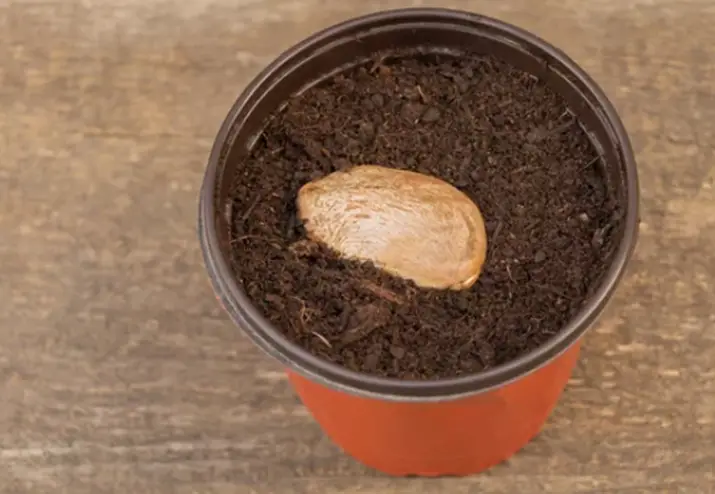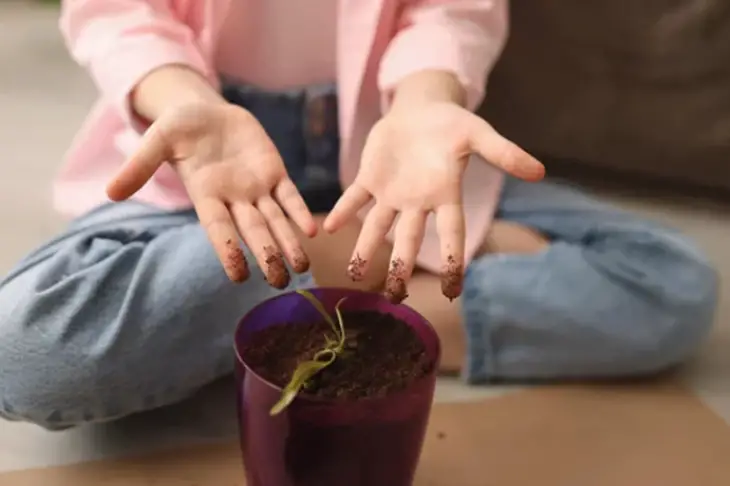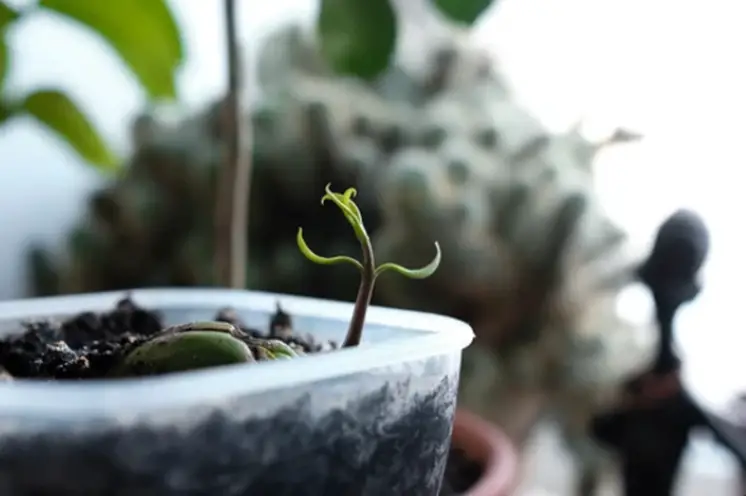In this post, we have talked about how to grow a mango tree from a seed.
I have also shared some useful tips and strategies on how to make the most of your mango tree.
Mango trees are grown in tropical climates and are typically propagated from seed.
When planting a mango tree, it is important to provide the right environment for the seed.
The two most important factors are temperature and light.
These two major factors will impact how quickly the tree grows, how well it is able to grow, and how you can get high yields from your garden.
What is Sprouting?
Sprouting is a process in which you soak and then sprout the seed of a fruit or vegetable.
The process of soaking and sprouting helps to break down the phytic acid and other compounds that can inhibit the absorption of nutrients in the body.
The process of soaking and sprouting many times contains beneficial microorganisms in the soaked seed that help with digestion.
The nutrients in the soaked seed can be damaged by heat so soaking and sprouting help to preserve the nutrients by keeping them cool. This process is done at home or even in a food processor.
How to Sprout Mango Seeds?

The process of sprouting mango seeds is quite easy. When you get your seeds, soak them in water for a few hours or overnight.
The next day, plant the seeds at least 1 inch deep into moist soil and keep the soil moist but not soaking wet.
The top of the seed should be just barely above the soil surface. If it’s too high then you risk it getting too hot and drying out which will kill your seedling.
If it’s too low then there’s a good chance that it will get too cold at night which can also kill your seedling.
Once the seedling starts to grow, you can transplant it into your garden or pot.
How Long Does it Take for a Mango Seed to Germinate?

If a mango seed is planted in an area of light soil and moist, it will take about 2-3 weeks for the first leaves to break through the surface.
If the soil is heavier, then it may take longer or not at all.
The average time needed for a mango seed to germinate varies depending on how well-kept it is and where it is being planted.
What are the Best Conditions for Growing Mangoes?
In summer, mango trees thrive in a sunny location with well-drained soil.
They can be grown in pots or in the ground. The ideal pH is between 6.0 and 7.0, but they grow best at slightly acidic soil (pH 5.5 to 6.5).
Mangoes need a constant supply of water and fertilizer during the growing season but will self-prune when they are mature; they also need to have a period of cool, dark rest in winter.
Mangoes are propagated by seeds or by growing new plants from cuttings that can be made from roots, shoots, or leaves taken from mature trees.
The number of fruits to harvest depends on the size of the tree and ripening times vary between varieties.
Mangoes are a high-sugar fruit that is mostly water and fiber with few nutrients other than a small amount of vitamin C; they should not be fed to animals.
Here are some frequent questions about how to sprout a mango seed.
How long does it take to grow mango from seed to fruit?

How long does it take to grow mango from seed to fruit
Mango trees are propagated from seedlings and it takes a few years for them to grow into mature trees.
Mango seeds need to be planted in the right climate zones, with a lot of moisture and fertilizer. The mango tree needs to be pruned regularly to allow for better growth.
It takes about three years for the seedling tree to produce fruit.
Fruits are picked when they’re ripe, and the skin should feel firm. The mango ripens at different times depending on the variety.
Do you soak mango seeds before planting?
This is a common question in the gardening world. There are two schools of thought on this one: those who soak their mango seeds and those who don’t.
Some people feel that soaking the mango seeds before planting them increases the chances of germination because it helps break down sugars in the seed coat, which may help them sprout better.
Some people also feel that soaking the mango seeds doesn’t really do anything, and it is just a myth.
What happens if you don’t soak seeds before planting?
There are many reasons why you would want to soak your seeds before planting them. For example, soaked seeds will germinate faster and grow better.
If you don’t soak the seeds beforehand, then they will most likely not grow at all or they will take a long time to sprout. Soaking the seeds helps them absorb water and nutrients which are necessary for their growth.
To soak your Mango seeds, you can do one of the following:-
- Fill a jar with water and place the jar on a countertop.
- Place your seeds in the water and top it up to an inch or so from the top.
- Pour warm (not hot) tap water into a plastic container until it fills completely.
- Place your seeds in this container and use a plate to weigh them down for about six hours or overnight.
- You can also cover this container with s saran wrap to prevent the container from getting a build-up of moisture.
I hope these tips will help you grow your own mango tree in an efficient way.
I also hope this article has answered your questions on how to grow a mango tree from a seed. This article was written by Gregory Warmington.




